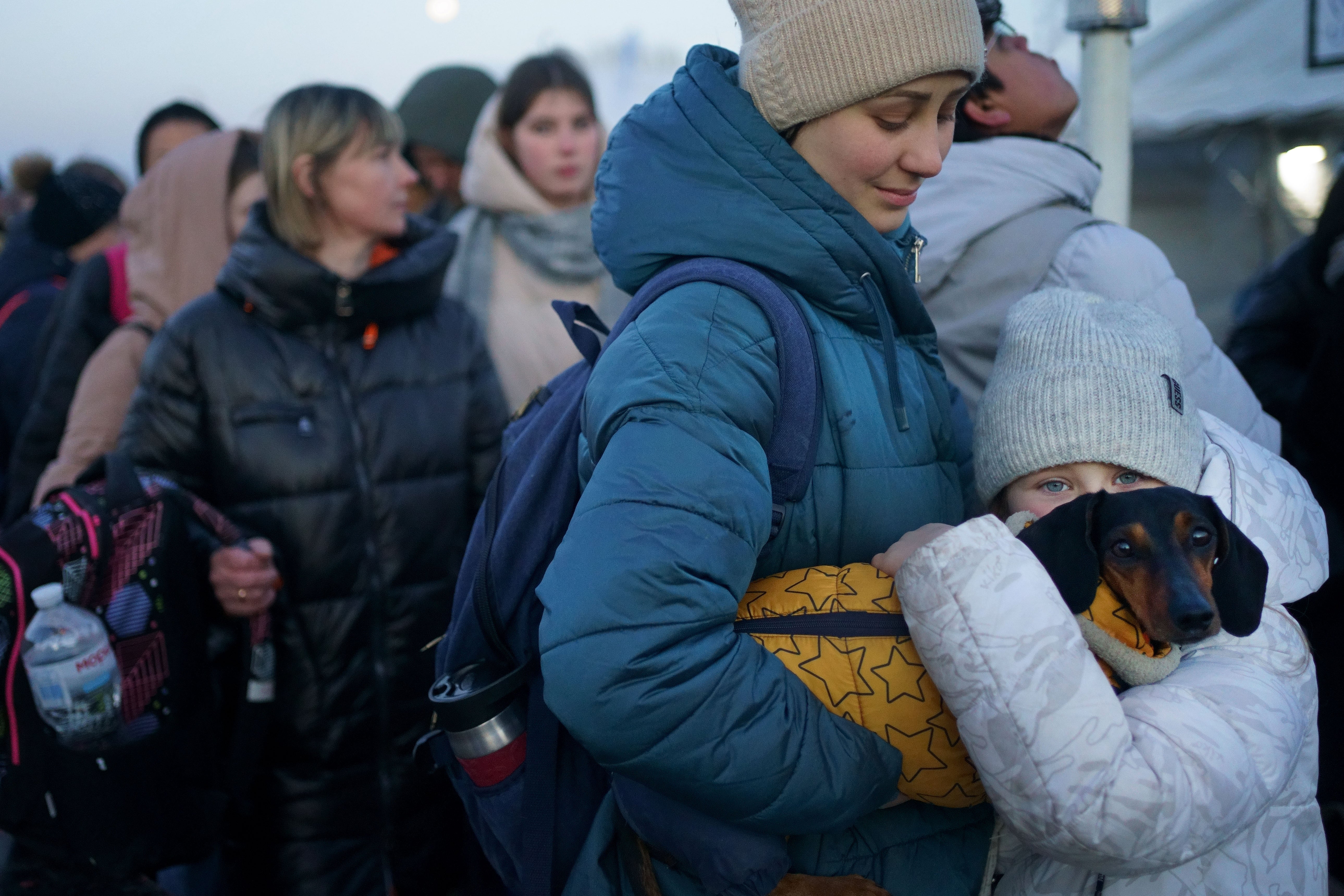Ministers criticised for slow delivery of humanitarian aid to Ukraine
The Commons International Development Committee chair said she was ‘shocked and disappointed’ that less than £60 million has been sent.

Your support helps us to tell the story
From reproductive rights to climate change to Big Tech, The Independent is on the ground when the story is developing. Whether it's investigating the financials of Elon Musk's pro-Trump PAC or producing our latest documentary, 'The A Word', which shines a light on the American women fighting for reproductive rights, we know how important it is to parse out the facts from the messaging.
At such a critical moment in US history, we need reporters on the ground. Your donation allows us to keep sending journalists to speak to both sides of the story.
The Independent is trusted by Americans across the entire political spectrum. And unlike many other quality news outlets, we choose not to lock Americans out of our reporting and analysis with paywalls. We believe quality journalism should be available to everyone, paid for by those who can afford it.
Your support makes all the difference.Ministers have been criticised for the slow delivery of humanitarian aid to Ukraine following the disclosure that less than a third of the £220 million promised has so far been sent.
The chair of the Commons International Development Committee Sarah Champion said she was “shocked and disappointed” after Foreign Secretary Liz Truss said that as of the end of March, the Government was “on track” to have disbursed up to £60 million.
In a letter to the committee dated April 1, Ms Truss said: “We are scaling up at speed whilst ensuring that risks are managed appropriately and aid is targeted effectively.”
These people need our help now – not at some vague future date
In a statement, Ms Champion said: “I am shocked and disappointed that less than £60 million of the UK’s promised £220 million humanitarian aid package for Ukraine has been delivered so far.
“On March 9, I urged the Prime Minister to make sure the UK’s pledges for Ukraine are disbursed quickly. Today, more than a month later, it is shameful that I have to repeat that urgent appeal.
“More than 12 million people in Ukraine are in need of humanitarian support, as well as four million people who have fled the country. These people need our help now – not at some vague future date.”
At a briefing on Tuesday, a UK official said about £120 million has been allocated and £60 million delivered to recipients, but said “we’d expect that to speed up now”.
He said a Foreign, Commonwealth & Development Office guarantee, enabling 450 million US dollars (£346 million) of additional World Bank financing to the Government of Ukraine, will go through either in April or by early May.
And, later this week, the UN is expected to extend its appeal for funding for a further three months to the end of August.
The most pressing humanitarian issues are around access to food, shelter, medicines, mental health and psychological support, supporting survivors of sexual violence, and de-mining in areas where Russian forces have withdrawn.
Officials expect more movement of Ukrainians westward to relatively safe parts of the country as military activity intensifies in the Donbas region in the east.
They are also concerned about the “most desperate” civilians, such as the elderly and disabled, who will find it difficult to leave their homes and therefore will be “caught up in the fighting”.
A UK official said: “It is incredibly dangerous for those people who remain, and to be able to get convoys into the cities that are under attack.
“There have been quite a few attempts to get convoys into cities to date, so the UN and the Red Cross have been working hard with Government.
“I would say probably about three quarters of them haven’t been successful, which just shows you how difficult it is to get agreements to allow basically corridors of people out and food in.
“So we will do what we can, the Government the Red Cross, the UN, we will all continue to do what we can in terms of supporting those who basically had to remain, but clearly the best thing is for people to leave.”